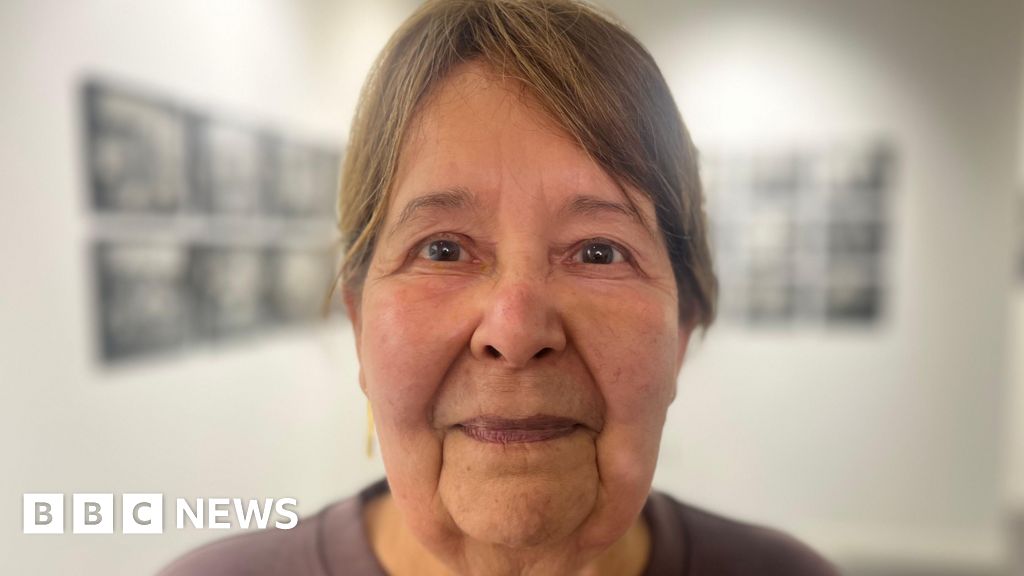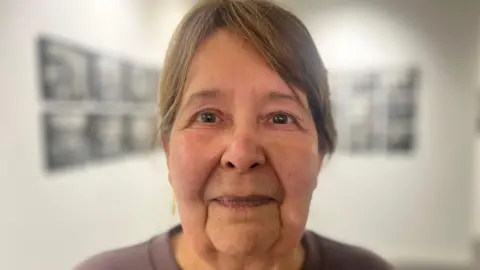 BBC
BBC
Sheila Chakravarti uses her camera to document people who have come to live in Northern Ireland from somewhere else
Ethnic minorities living in Northern Ireland are sharing their personal stories following a summer of riots in Ballymena and previous anti-immigration protests.
With race-related hate crime at its highest level since records began 20 years ago, migrants say they are feeling increasingly marginalised and unsafe.
A new photobook by artist and photographer Sheila Chakravarti seeks to give some who have been attacked a platform through portraits – a voice, instead of victimhood.
The photographer, who has lived in Northern Ireland for 50 years, says she hopes show the resilience of people affected by racism.
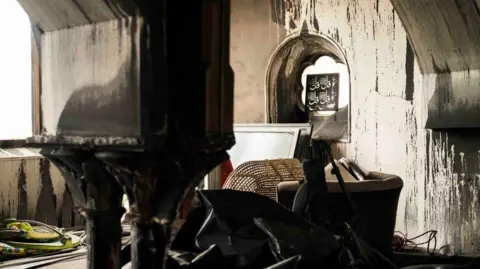 Sheila Chakravarti
Sheila Chakravarti
One of Sheila’s photographs, documenting an attack on the Belfast Multicultural Association in 2022
Ms Chakravarti said she wanted to explore the lived realities of racism, characterising immigrants, asylum seekers, and refugees whose voices are often marginalised.
Through intimate photographic portraits, she is challenging the way people affected by racism are represented.
She added that she is still asked where she is really from.
“It happens endlessly,” she said.
“I don’t think I have found anybody who hasn’t experienced racism at some level.”
‘Proactive anti-immigration movement’
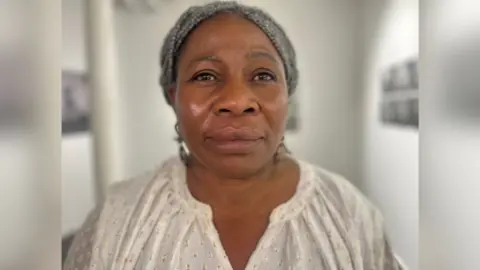
Nurse Beverley Simpson has been living in Northern Ireland for 20 years
“Everyone should be conscious of what is happening here,” said Beverley Simpson who has been living and and working as a nurse in Londonderry for two decades.
Beverley spoke to BBC News NI at the launch of First they Ignore you.
She said she is concerned that “racism is overtaking sectarianism in Northern Ireland”.
PSNI figures show race related hate crime is at its highest level since records began, with 1,329 crimes with a race motivation in the 12 months to the end of June 2025.
Meanwhile, this year saw a decrease of 181 sectarian incidents, from the previous year.
Beverley has spent decades trying to “integrate into the society” she calls home.
In her nursing job, she regularly faces racism, “sometimes subtle, or it can be open”.
While she points to a growing “awareness now”, she said there is also “a very proactive anti-immigrant movement” in Northern Ireland that is becoming more “serious and very committed to spreading misinformation”.
“War will bring refugees, there’s not much we can do about that, people need safety as a priority and will want to come to a safe country,” she said.
“What we do to welcome them will impact how they contribute to that society.”
Workplace racism ’emotionally draining’
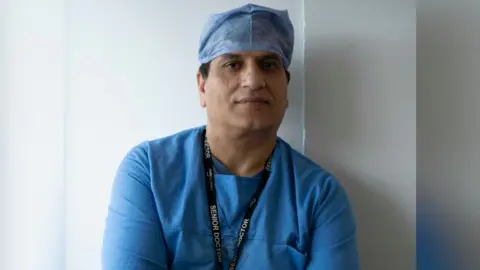 Sheila Chakravarti
Sheila Chakravarti
Dr Mukesh Chugh described the rise in race hate crimes in Northern Ireland as “deeply concerning”
Dr Mukesh Chugh has been practicing as a consultant anaesthetist at Altnagelvin Hospital for almost 20 years.
He told BBC News NI that facing racism in the work place is “never easy” and can be “emotionally draining”.
“My colleagues have been subjected to verbal abuse including ‘go back to your country’ or refusing to be cared by certain individuals based on their identity or where are they from,” he said.
He said there has “definitely been an increase in racism recently”.
“It feels like the societal tensions we’ve seen in the news are starting to show up in everyday life. People are more anxious and, sadly, more willing to express racist attitudes openly.”
He described the rise in race hate crimes in Northern Ireland as “deeply concerning”.
“It reminds us how much work still needs to be done to build understanding and respect.
“Personally, it strengthens my commitment to treating everyone fairly and advocating for inclusivity wherever I can,” he added.

